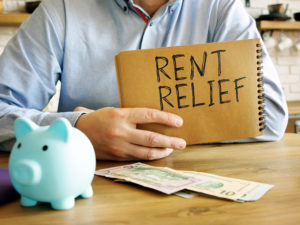What Do You Do When You Owe Taxes But Don’t Have the Funds?
For many people tax season brings the joy of a nice big refund to go out and splurge on something they’ve had your eye on for a long time. On the flip side of the equation are those people who surprisingly, or not, end up owing the IRS money. Not only do these people miss out on the extra cash influx, but they also have to come up with the funds to pay off the extra tax bill.
For some people, depending how high the bill is, they could have to pay even more than just the shortage amount. That’s because many times when people underpay they end up owing penalties for the underpayment. For those who owe a lot of money, those penalties could end up being huge. In fact, the penalties can even be much higher than the shortage.
That’s why it’s always best to try to avoid owing any money to the IRS, especially if you don’t have the funds to pay it off when the tax bill comes due. So what happens to people who can’t pay their tax bill? You do have a few options.
In some cases, it might be a good idea to take out a loan or a line of credit in order to pay off the bill. Of course, you will then be responsible to pay off the loan, so use caution. Another option is to apply for an extension with the IRS. This could buy you a little time to come up with the needed funds. If you need even more time then try applying for a hardship extension, which could give you up to six months to pay it off. You could also ask the IRS for permission to set up a payment plan to pay off the debt in installments.
Whichever path you decide to take, make sure you do something. Don’t ignore the problem or it will only get worse. The penalties will likely increase the longer you wait and the IRS could eventually take other measures or even press charges. So the bottom line is: do something.
How to Lead in the Age of Agile During a Pandemic
How to Lead in the Age of Agile During a Pandemic Have you heard of agile? It’s often a buzzword in the workplace. Agile started as a philosophy related to software development. But in the past few years, it has morphed into an entire work philosophy. It’s generally viewed as the ability to create and…
4 Ways to Improve Workplace Mutual Respect
Does workplace mutual respect matter during a pandemic? Yes, it’s important with or without a pandemic, just like it is at home! The new social distancing rules prompted by the COVID-19 pandemic have resulted in a proliferation of remote workers. How do business leaders and organizations adjust to extraordinary circumstances never taught in business school? …
Possible PPP Legislation | 1099-B & W-4P
Update on Possible PPP Legislation Hello and welcome. This is Ron Cohen. And this is a tax updates podcast. I’m with the firm of Greenstein Rogoff, Olsen and company. My phone number is 510-797-8661. Call anytime we’re happy to talk and chat with anybody a little bit to see if we can help. This episode…
Proposed California Tenant Relief and Coronavirus Update
Re. the proposed California tenant relief and Coronavirus update. Dear Clients and Friends: I keep saying: “I’ve never seen anything like this before!”…and then there is more! June 17, 2:35 p.m. A proposed California Senate bill could give out-of-work tenants in the state 10 years to pay back unpaid rent due to loss of income related to the…



